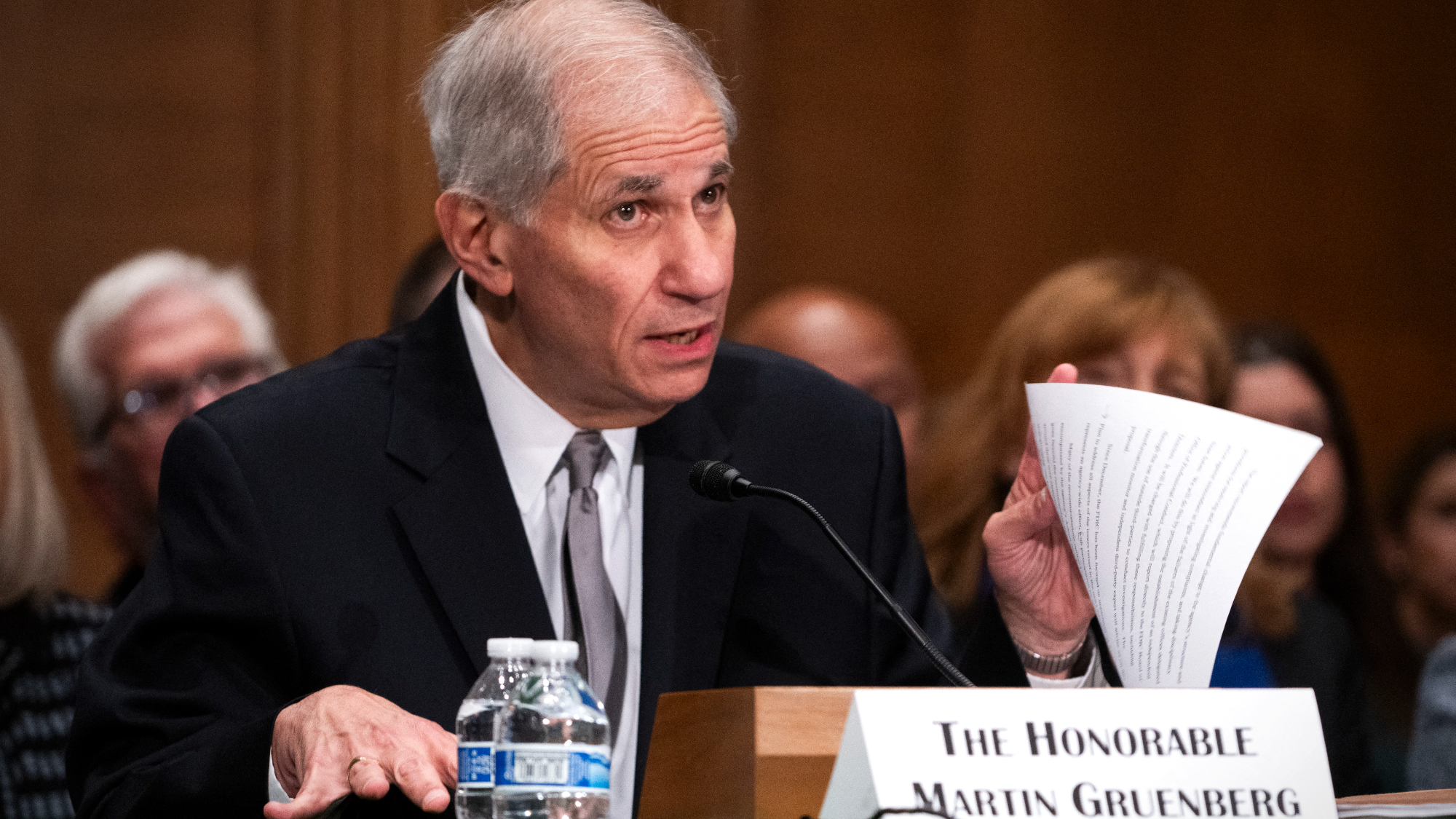City giants begin move to Frankfurt as Brexit doubts grow
German finance hub looks to assume the mantle of Europe’s business capital

A free daily email with the biggest news stories of the day – and the best features from TheWeek.com
You are now subscribed
Your newsletter sign-up was successful
Some of Wall Street’s biggest firms are moving their European headquarters from London to Frankfurt, after months of slow and acrimonious negotiations between Britain and the EU.
With London’s future as Europe’s financial capital more uncertain than ever, Reuters reports Goldman Sachs has agreed to lease 10,000 square meters of office space in the German finance hub, which would be enough room for as many as 1,000 staff.
That would increase its number of employees in Germany fivefold, allowing it to bolster activities including trading, investment banking and asset management.
The Week
Escape your echo chamber. Get the facts behind the news, plus analysis from multiple perspectives.

Sign up for The Week's Free Newsletters
From our morning news briefing to a weekly Good News Newsletter, get the best of The Week delivered directly to your inbox.
From our morning news briefing to a weekly Good News Newsletter, get the best of The Week delivered directly to your inbox.
A Goldman Sachs spokesman said increased staff in Frankfurt would give the bank “space to execute on our Brexit contingency plan”. It is a big win for the German city, as it looks to benefit from Brexit uncertainty and take the City of London’s financial crown.
The report comes after Morgan Stanley signed a lease for more office space. JP Morgan is “considering” dramatically expanding its Frankfurt operation and Citi has also confirmed it will expand its Frankfurt office.
These moves, which have already had a dramatic effect on house prices in Frankfurt, are prompted by nervousness over the state of the Brexit negotiations and fears that London will find it harder to do business in Europe once the UK leaves the bloc.
Although some politicians in Britain are sceptical banks will follow through by moving large numbers of jobs, “bankers in the City of London financial hub see an urgent need to act”, says Reuters.
A free daily email with the biggest news stories of the day – and the best features from TheWeek.com
Earlier this week, Bank of England deputy governor Sam Woods said any transitional deal with the EU to smooth the way for business would probably need to be agreed by Christmas to prevent banks implementing their emergency Brexit contingency plans.
-
 Can foster care overhaul stop ‘exodus’ of carers?
Can foster care overhaul stop ‘exodus’ of carers?Today’s Big Question Government announces plans to modernise ‘broken’ system and recruit more carers, but fostering remains unevenly paid and highly stressful
-
 6 exquisite homes with vast acreage
6 exquisite homes with vast acreageFeature Featuring an off-the-grid contemporary home in New Mexico and lakefront farmhouse in Massachusetts
-
 Film reviews: ‘Wuthering Heights,’ ‘Good Luck, Have Fun, Don’t Die,’ and ‘Sirat’
Film reviews: ‘Wuthering Heights,’ ‘Good Luck, Have Fun, Don’t Die,’ and ‘Sirat’Feature An inconvenient love torments a would-be couple, a gonzo time traveler seeks to save humanity from AI, and a father’s desperate search goes deeply sideways
-
 What a rising gold price says about the global economy
What a rising gold price says about the global economyThe Explainer Institutions, central banks and speculators drive record surge amid ‘loss of trust’ in bond markets and US dollar
-
 Can the UK avoid the Trump tariff bombshell?
Can the UK avoid the Trump tariff bombshell?Today's Big Question President says UK is 'way out of line' but it may still escape worst of US trade levies
-
 Five years on, can Labour's reset fix Brexit?
Five years on, can Labour's reset fix Brexit?Today's Big Question Keir Starmer's revised deal could end up a 'messy' compromise that 'fails to satisfy anyone'
-
 What does the FDIC do?
What does the FDIC do?In the Spotlight The Federal Deposit Insurance Corporation is now a 'Trump target'
-
 TD Bank accepts $3B fine over money laundering
TD Bank accepts $3B fine over money launderingSpeed Read The US retail bank pleaded guilty to multiple criminal charges
-
 FDIC chair out after toxic work culture report
FDIC chair out after toxic work culture reportSpeed Read The report revealed a trend of sexual harassment and discrimination at the Federal Deposit Insurance Corporation
-
 Why au pairs might become a thing of the past
Why au pairs might become a thing of the pastUnder The Radar Brexit and wage ruling are threatening the 'mutually beneficial arrangement'
-
 Brexit: where we are four years on
Brexit: where we are four years onThe Explainer Questions around immigration, trade and Northern Ireland remain as 'divisive as ever'